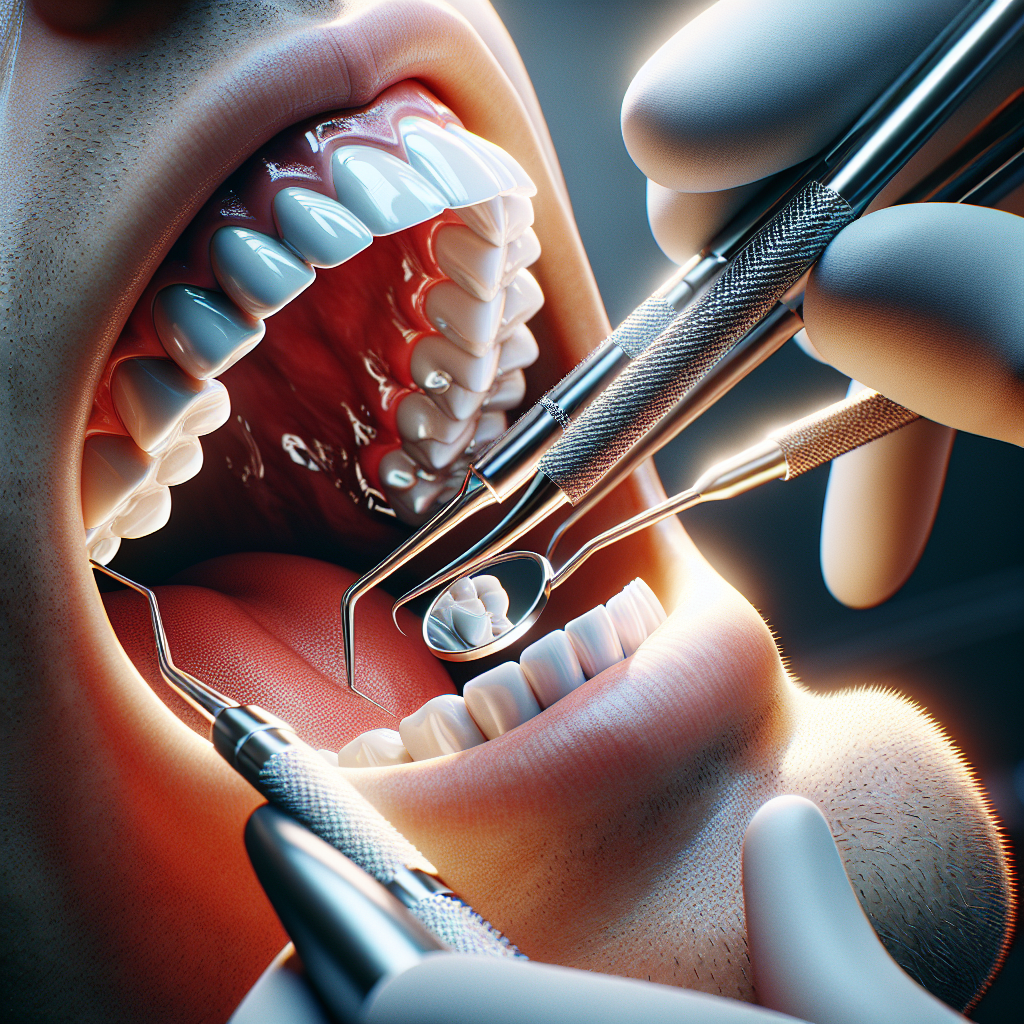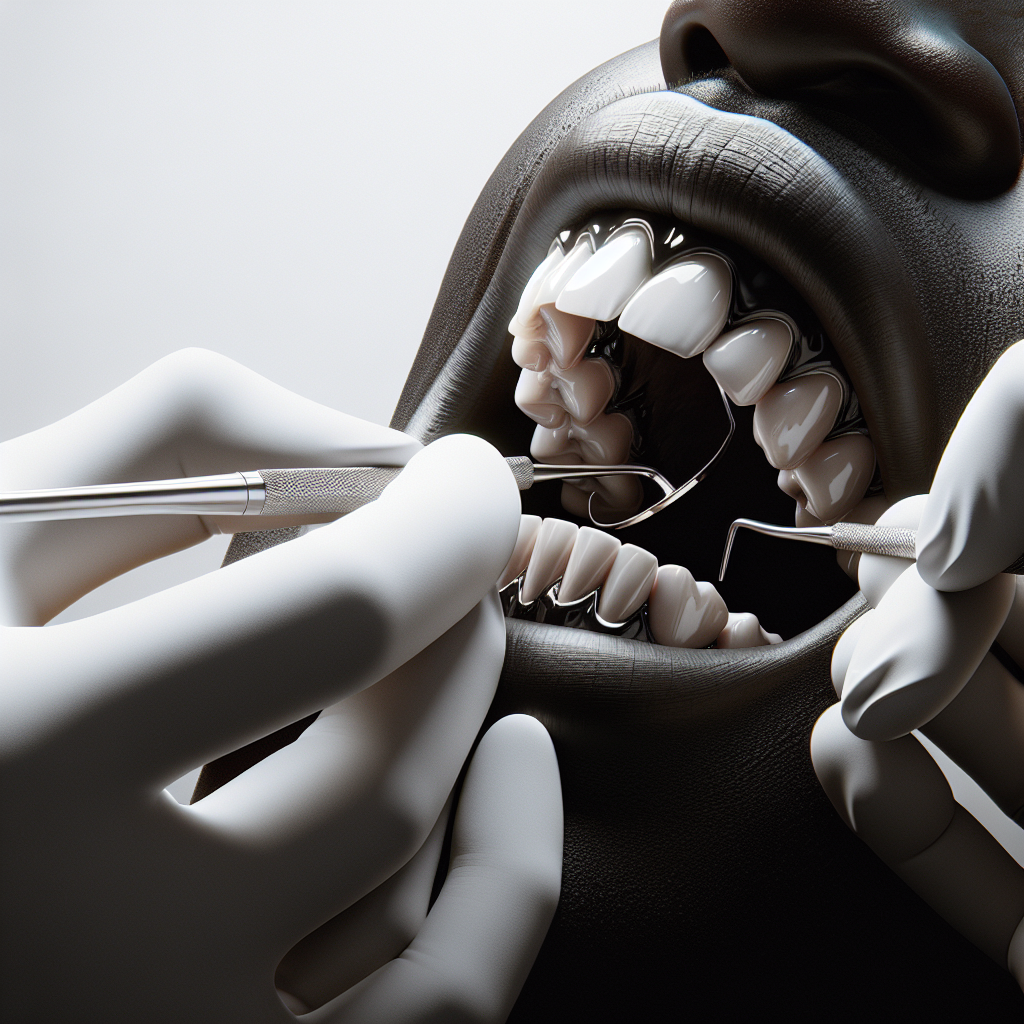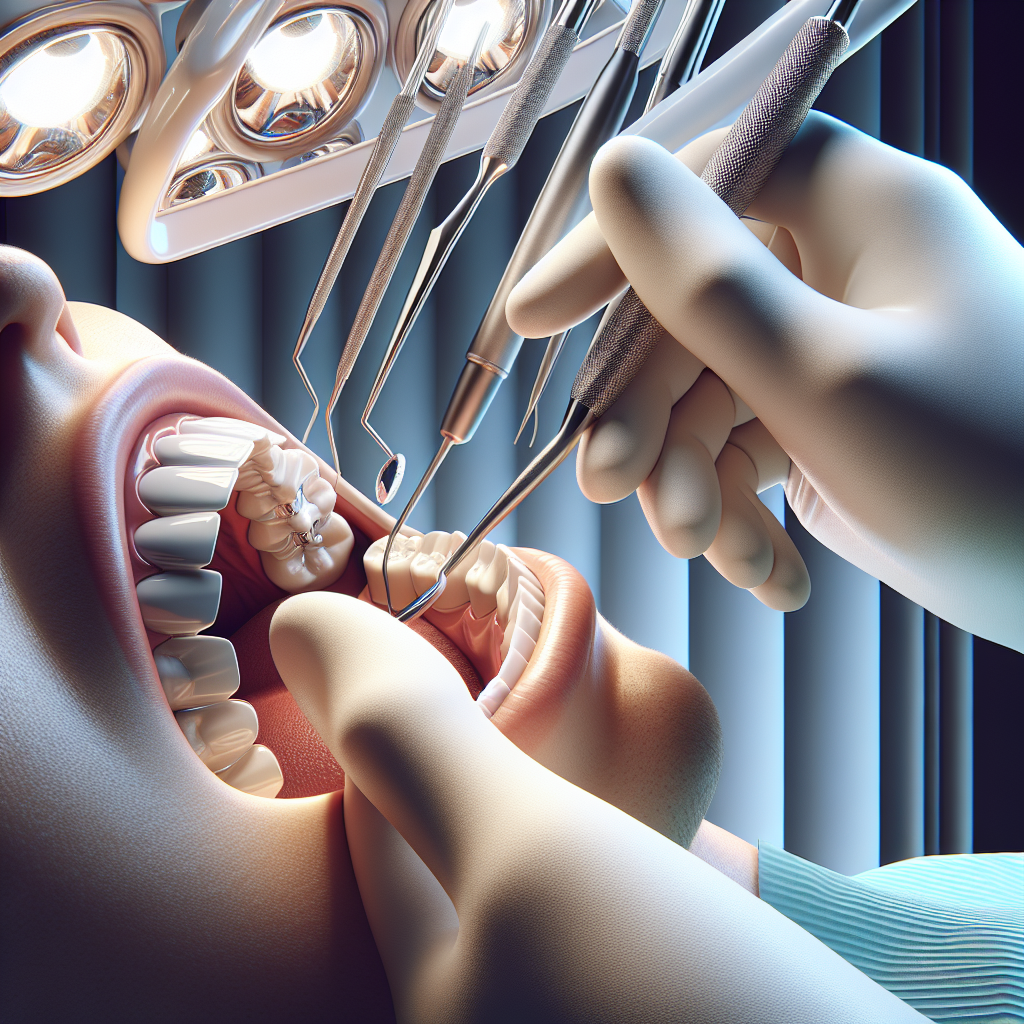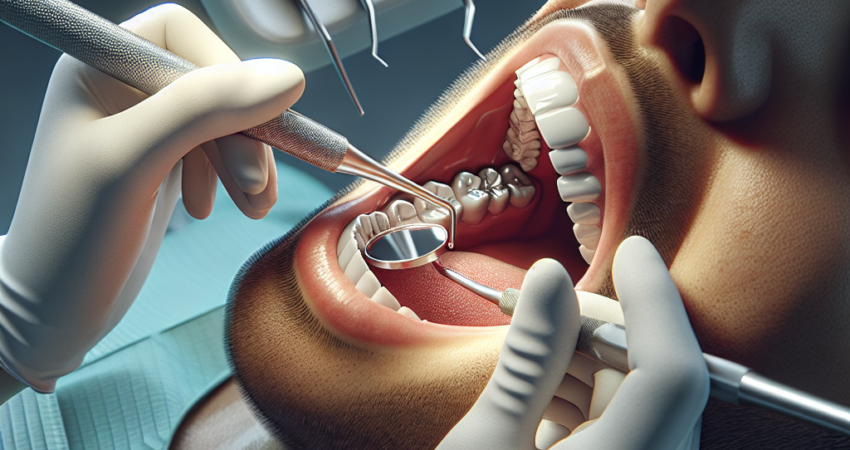- August 19, 2024
- Derek
Deep Cleaning for Teeth Cost Breakdown
When it comes to maintaining optimal oral health, regular dental check-ups and cleanings are essential. However, sometimes standard cleanings are not enough to address all dental issues. This is where deep cleaning for teeth comes in. Also known as scaling and root planing, this procedure goes beyond the surface to clean areas below the gumline, removing plaque, tartar, and bacteria that can cause serious dental problems if left untreated.
Deep cleaning for teeth is particularly beneficial for those suffering from gum disease. By thoroughly cleaning the roots of your teeth, it helps to prevent the progression of gum disease, potentially saving you from more invasive procedures down the line. This procedure is not just about cleaning; it’s about restoring the health of your gums and the foundation of your teeth.
In this article, we will delve into the various aspects of deep cleaning for teeth, including the cost breakdown and what to expect during the procedure. We’ll also explore the myriad benefits and factors that can influence the overall price. Whether you’re considering deep cleaning for preventive care or to address specific dental issues, understanding the ins and outs of the procedure will help you make an informed decision.
Visit our website to learn more and get your FREE Quote today! Click here.
Understanding the Deep Cleaning Procedure

Deep cleaning for teeth, or scaling and root planing, is a more intensive procedure compared to a regular dental cleaning. It is designed to treat gum disease and prevent it from worsening. Understanding this procedure can help alleviate any concerns and prepare you for what to expect.
The process typically involves two stages: scaling and root planing. Scaling involves the removal of plaque and tartar from the surface of the teeth and below the gumline. Dental hygienists use specialized tools to meticulously clean these areas, ensuring that all harmful deposits are eliminated.
Root planing is the next step, which focuses on cleaning and smoothing the tooth roots. This is crucial because rough spots on the roots can harbor bacteria and toxins that contribute to gum inflammation and infection. By smoothing these areas, root planing helps the gums to reattach to the teeth, promoting better oral health.
Often, deep cleaning is performed under local anesthesia to ensure comfort. Depending on the severity of the gum disease and the extent of plaque buildup, the procedure may require multiple visits. After the cleaning, it’s not uncommon to experience some tenderness and sensitivity in the gums, but this usually subsides within a few days.
Overall, deep cleaning is a highly effective method for combating gum disease and maintaining a healthy mouth. It’s a proactive approach to ensuring that your gums and teeth remain in the best possible condition, reducing the risk of more severe dental issues in the future.
Benefits of Deep Cleaning for Teeth

Deep cleaning for teeth offers numerous benefits that extend beyond simply maintaining oral hygiene. This procedure is particularly advantageous for those struggling with gum disease, providing a pathway to healthier gums and teeth.
One of the primary benefits of deep cleaning is the prevention of gum disease progression. By removing plaque and tartar buildup from below the gumline, deep cleaning helps to eliminate the bacteria that cause gum infection. This can significantly reduce inflammation, bleeding, and swelling of the gums.
Another key benefit is the prevention of tooth loss. Gum disease is a leading cause of tooth loss in adults, and deep cleaning can help preserve your natural teeth by keeping the supportive structures around them healthy. By addressing gum disease early, you can avoid the need for more invasive treatments, such as tooth extractions or periodontal surgery.
Improved breath is another notable advantage. Bad breath, or halitosis, is often caused by bacteria in the mouth. Deep cleaning removes these bacteria, resulting in a fresher breath and a more pleasant overall oral environment.
Additionally, deep cleaning can enhance your overall health. Numerous studies have linked oral health to overall health, indicating that untreated gum disease can contribute to other health issues, such as heart disease and diabetes. By taking care of your gums, you are also taking a step towards better overall health.
Lastly, deep cleaning can improve the aesthetics of your smile. By removing plaque and tartar, your teeth will look cleaner and brighter, boosting your confidence and making your smile more attractive.
In summary, deep cleaning for teeth is a crucial procedure for maintaining both oral and overall health. Its benefits, from preventing gum disease to improving breath and aesthetics, make it a worthwhile investment in your dental care routine.
Factors Affecting Deep Cleaning Costs

When it comes to deep cleaning for teeth costs, several factors can influence the final price you may pay. Understanding these factors can help you anticipate expenses and plan accordingly.
First and foremost, the severity of the condition plays a significant role. If you have advanced gum disease or a large amount of plaque and tartar buildup, the procedure may be more extensive and time-consuming, thereby increasing the cost. On the other hand, milder cases may require less work and be less expensive.
The number of sessions needed can also impact the cost. Deep cleaning is often done in multiple visits, especially if your dentist needs to focus on different quadrants of your mouth. The more sessions required, the higher the overall cost.
Geographic location is another critical factor. Dental services can vary widely in price depending on where you live. Urban areas with a higher cost of living generally have higher dental fees compared to rural areas.
The dentist’s expertise and reputation can also affect pricing. Highly experienced or specialized dentists may charge more for their services, reflecting their skill level and the quality of care provided.
Additionally, the use of advanced technology and materials can influence costs. Some dental practices use state-of-the-art equipment and high-quality materials to ensure the best results, which can add to the overall expense.
Insurance coverage is another factor to consider. While some dental insurance plans cover a portion of the cost for deep cleaning, others may not. It’s essential to check with your insurance provider to understand what is covered and what out-of-pocket expenses you may incur.
Lastly, any additional treatments required can increase the cost. For example, if your dentist recommends scaling and root planing along with deep cleaning, this will add to the overall price.
By being aware of these factors, you can have a more informed discussion with your dentist about the expected costs and explore options to make the procedure more affordable.
Typical Cost Breakdown for Deep Cleaning

Understanding the typical cost breakdown for deep cleaning can help you prepare financially and ensure you know what to expect. The costs associated with deep cleaning usually include a few key components.
The most basic part of the cost is the initial consultation. During this visit, your dentist will examine your teeth and gums to determine the severity of your condition and create a treatment plan. This consultation fee can range from $50 to $150, depending on the dental clinic.
The primary cost is associated with the scaling and root planing procedure itself. This involves cleaning the surfaces of the teeth and their roots to remove plaque and tartar buildup. The cost for scaling and root planing can vary widely, typically ranging from $100 to $300 per quadrant. Since the mouth is divided into four quadrants, a full-mouth deep cleaning can cost between $400 and $1,200.
In some cases, your dentist may recommend the use of local anesthesia to ensure your comfort during the procedure. The cost of anesthesia can add another $50 to $200 to the overall expense, depending on the type and amount used.
Additionally, if your dentist uses specialized tools or advanced technology, this can also affect the cost. For example, laser-assisted scaling might be more expensive than traditional methods, adding an extra $100 to $300 to the overall price.
It’s also essential to factor in the cost of any follow-up visits. After the initial deep cleaning, your dentist might schedule follow-up appointments to monitor your progress and ensure your gums are healing correctly. Each follow-up visit can range from $50 to $150.
Lastly, if you require any additional treatments such as antibiotic therapy or antimicrobial rinses to further manage gum disease, these will add to the overall cost. Such treatments can range from $20 to $100 per session.
By breaking down these typical costs, you can better anticipate the financial commitment involved in deep cleaning your teeth and discuss payment options or financing plans with your dental provider.
Preparing for Your Deep Cleaning Appointment

Preparing for your deep cleaning appointment is crucial to ensure a smooth and stress-free experience. Here are some steps to help you get ready for the procedure.
First, have a detailed discussion with your dentist about the procedure and expectations. Understanding what the process entails, including the duration and any potential discomfort, can help ease anxiety. Ask about the tools and techniques that will be used, and clarify any pre-appointment instructions.
Next, make sure to inform your dentist about your medical history and current medications. Certain medical conditions or medications can affect the procedure, so it’s essential to provide complete and accurate information.
Plan your schedule to allow ample time for the appointment, including potential recovery time. Deep cleaning can be time-consuming, and you might require some rest afterward, especially if local anesthesia is used. Arrange for a friend or family member to drive you home if you’re receiving anesthesia.
Before your appointment, practice good oral hygiene by brushing and flossing thoroughly. This helps to minimize plaque and tartar buildup, making the procedure more efficient. However, avoid overdoing it, as vigorous brushing can irritate your gums.
Stay hydrated and have a light meal before your appointment. Being well-nourished and hydrated can help your body handle the procedure better. However, avoid eating too close to the appointment time to prevent any discomfort.
Lastly, prepare for any post-treatment care that might be needed. Stock up on soft foods, prescribed medications, and any recommended oral care products. Your dentist might provide specific aftercare instructions to ensure optimal healing and maintenance of your oral health.
By following these steps, you can ensure that your deep cleaning appointment goes smoothly and that you recover quickly. Visit our website to learn more and get your FREE Quote today! Click here.
